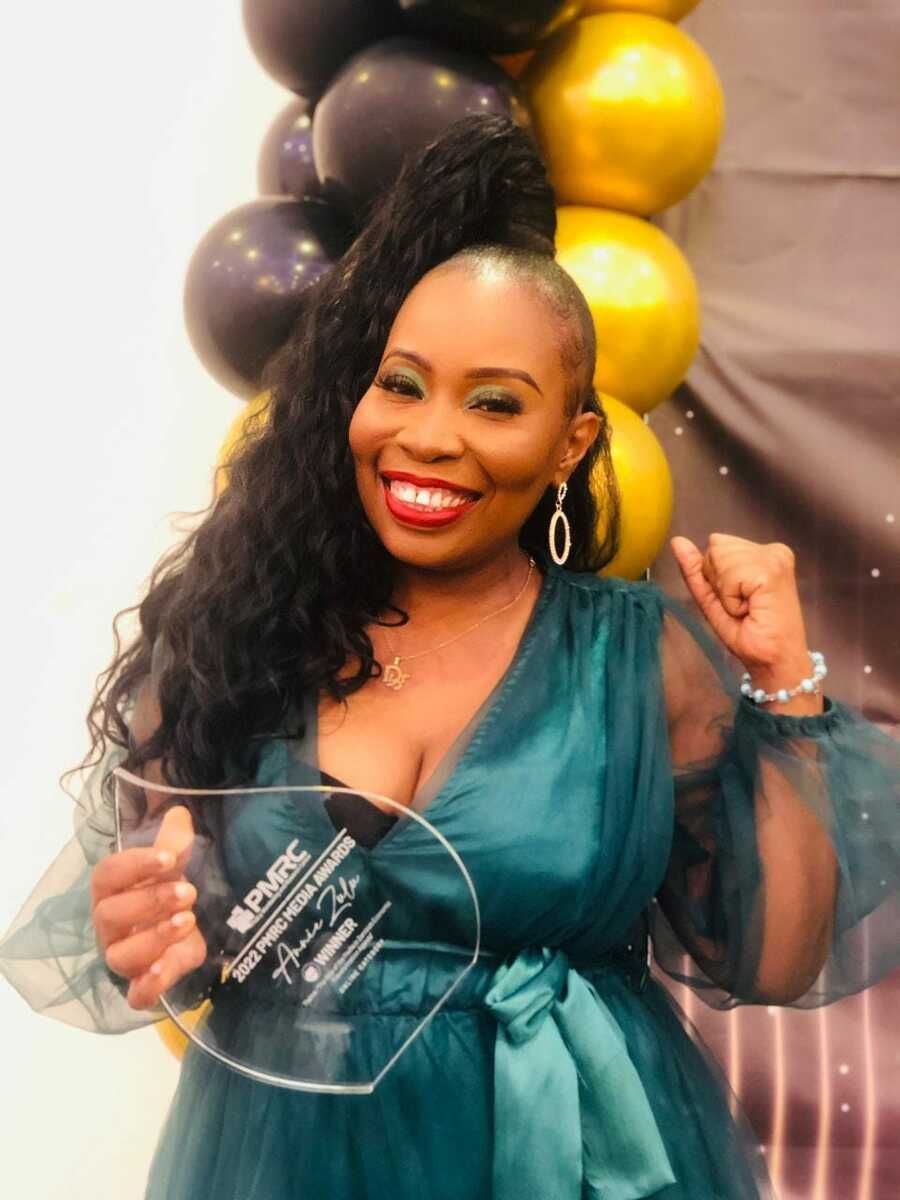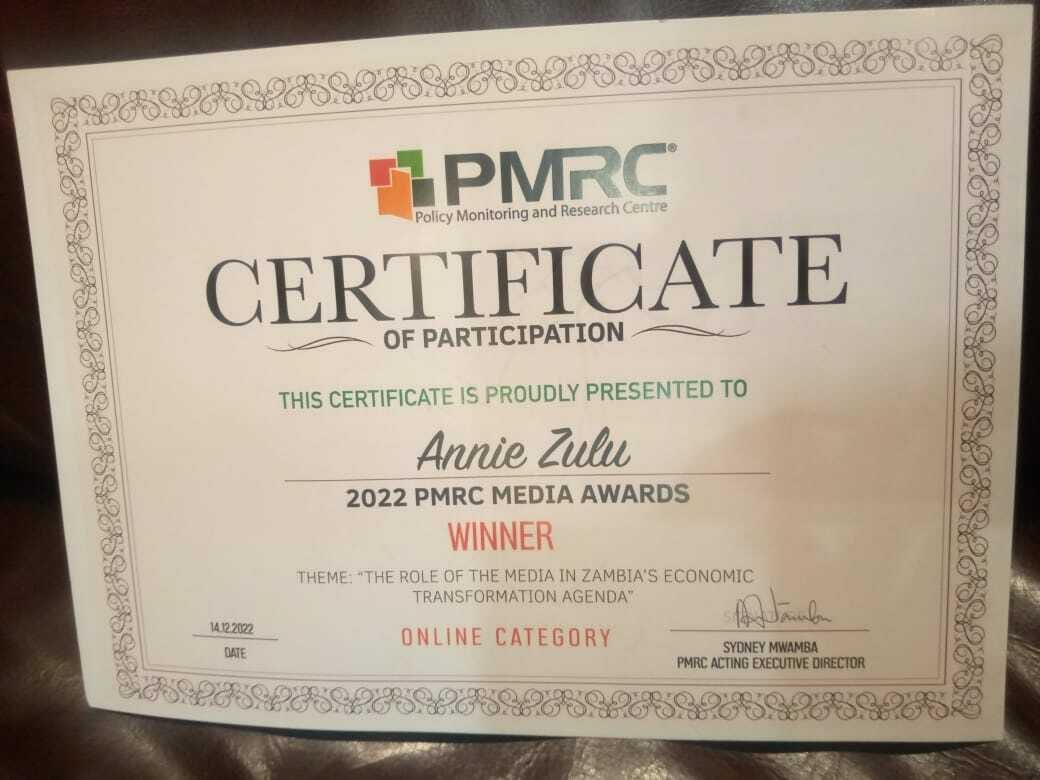
Malawi/Zambia: As an independent journalist, Annie Zulu has made a name for herself in Zambia with her investigative stories and has received multiple media awards.
AfricaBrief's Editor-in-Chief, Winston Mwale (W), interviews Annie (A), who demonstrates that it is possible to succeed as an independent journalist while producing high-quality work.
W: What inspired you to become a journalist and what challenges have you faced while pursuing your career in Zambia?
A: Growing up in a family that was passionate about staying informed about current events and news inspired me to become a journalist. From a young age, my mother encouraged me to watch the evening news on the Zambia National Broadcasting Corporation (ZNBC) and then discuss the stories with her. My grandmother, who was not formally educated, was an avid listener of the radio and had a strong understanding of both local and international news. I was also influenced by an aunt who had dreamed of becoming a journalist but never realized her dream. She introduced me to BBC Radio when I was 13 years old, and at that point, I knew that I wanted to pursue a career in journalism.
In addition to my family's influence, my passion for writing and storytelling also played a role in my decision to become a journalist. From a young age, I excelled at writing poems and short stories and enjoyed the creative process of crafting a narrative.
While I am grateful for my successful career in journalism, it has not been without challenges. One of the biggest obstacles I have faced is sexual harassment. I have experienced inappropriate comments from a Member of Parliament and have been subjected to inappropriate behaviour from cadres while covering a political event. These experiences highlight the difficulties that women, particularly women in journalism, can face in the workplace.

W: Could you describe some of the most memorable or impactful stories that you have covered in your career as a journalist in Zambia?
A: As a journalist, there is nothing more fulfilling to me than seeing my work bring about change in society and having authorities respond to a situation because of an article I wrote. I have had the opportunity to be a part of some of the most traumatic times in people's lives and have helped them find solutions or seek justice. The gratitude and appreciation I receive from readers through emails, messages, and phone calls, saying "thank you for writing about that issue," is the most rewarding aspect of my job.
Some of the most impactful stories I have covered have been about women and children, who are often marginalized in Zambia. These groups frequently face physical and sexual abuse, gender discrimination, child labour, early and forced marriage, and a lack of access to education and clean water. As a journalist, I believe it is important to shed light on these issues and advocate for better policies for women and children.
One particularly memorable story I covered was about a 15-year-old mentally challenged girl who was sexually assaulted by her stepfather and also infected with sexually transmitted infections (STIs). I followed the story from start to finish and helped the girl get the necessary medical care and justice. Another notable story I wrote was about a woman in labour who was turned away from a state hospital because she couldn't afford some of the required items and ended up delivering on the side of the road. This story received a lot of attention from the public and various stakeholders.

W: What challenges do you face as an independent journalist in Zambia and how do you overcome them?
A: Being an independent journalist in Zambia can be challenging because it means having to pay for many of the expenses associated with getting a story, such as travel, research, communication, and accommodation. To manage these costs, I plan out the stories I want to pursue and create a budget for the year at the beginning of each year. I also look for opportunities like media grants and fellowships to help fund my work.
Another challenge of being an independent journalist is that some people may not take you as seriously as they would a journalist from a larger media outlet. However, I have found that self-branding and building a reputation for myself have earned me respect in the industry. I have worked in various newsrooms and have learned that it is possible to make a significant impact as an independent journalist.
In terms of strategies that have contributed to my success as a journalist, finding my niche in gender-related topics has been particularly helpful. I do extensive research on these issues, attend training, read various documents, and consult with experts to ensure that my stories are well-informed and accurate. Writing about gender requires creativity, and I am able to apply this perspective to a range of topics, including politics, sports, climate change, economics, and technology.
W: How do you envision the future of journalism in Zambia, and what role do you believe independent journalists can play in shaping that future?
A: I envision a future where journalists are respected and able to access public information and report on it freely without their rights being infringed upon. Independent journalists have the opportunity to play a significant role in shaping this future by advocating for media freedom in Zambia. As independent journalists are not bound by the constraints of a traditional newsroom, they are able to speak up and speak out for their fellow journalists, who may not have the same level of freedom. I believe that the efforts of independent journalists will be crucial in creating a more equitable and just society for all.
